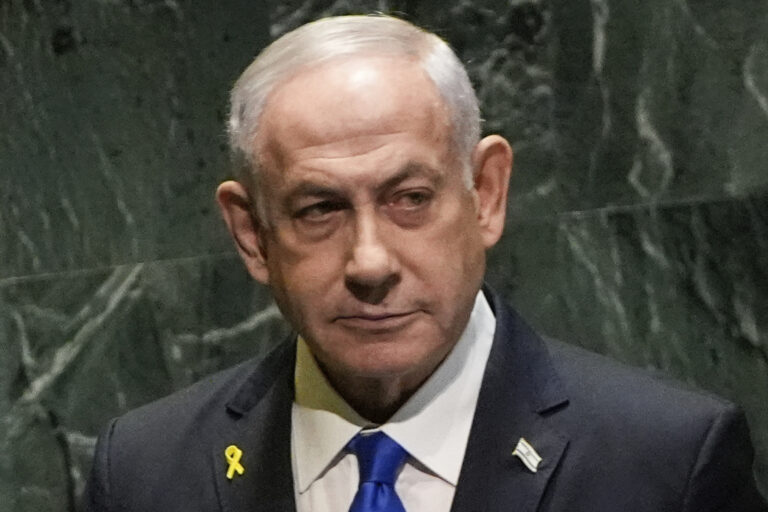 When interviewed a number of years ago, Aryeh Deri stated he feels it is time to rid the political community of chareidi parties, supporting those who felt chareidi politicians would be more effective running for slots on the lists of the larger secular parties. Today however, following his return to Shas, it appears the want-to-be minister has changed his view.
When interviewed a number of years ago, Aryeh Deri stated he feels it is time to rid the political community of chareidi parties, supporting those who felt chareidi politicians would be more effective running for slots on the lists of the larger secular parties. Today however, following his return to Shas, it appears the want-to-be minister has changed his view.
Today, there are more than a few people among the chareidi tzibur who feel this would be the most effective route to achieve the goals of the growing chareidi community. Proponents of eliminating chareidi parties explain that large parties such as Likud would have to make offers to attract the chareidi MKs, and this would place chareidi issues on the agenda of the larger political parties instead of permitting them to remain ‘chareidi issues’ addressed uniquely by the chareidi parties.
They explain the deal-making would take place prior to the election and the issues that are important to the chareidim would be included in agreements ahead of the election, and not left to coalition negotiations which follow the election.
The advocates of eliminating the chareidi parties also feel the disdain for chareidim would drop significantly, for the chareidi politicians would be viewed as an integral part of the mainstream political community and not just representatives who are concerned with their own issues. At present, in the eyes of many Israelis, the Arab and chareidi politicians are viewed as representatives of sector interest lobbies, not politicians who are seeking to improve the country for all. While it is true there are politicians in the large party who earned their seats by representing a specific area or group, this affiliation however is overshadowed by being part of the large party, and this would be the case if chareidim joined as well.
Proponents feel more can and would be accomplished by permitting chareidim to operate in the framework of the larger parties, and the current reality is actually detrimental to the chareidi tzibur, at least if one considers the longer-term future.
(YWN – Israel Desk, Jerusalem)











9 Responses
Arguably, if there were no hareidi parties, all the “secular” parties would need to appeal for hareidi votes, and would therefore cease being anti-hareidi. In effect, there would also be no anti-hareidi parties either. It would be similar to the United States, where both political parties need to appeal for religious votes and avoid appearing to be openly “anti-” anything.
To accomplish this in Israel, it would be necessary to switch to single member constiuencies, preferably with runoffs rather than the British “first past the post” system, which would force anyone running for the knesset to appeal for frum votes. The result might be fewer frum politicians, but more politicians anxious to do the bidding for the frum community.
However it would result in a shift on influence from the rabbanim to the “baal ha-habatim”. Less on army exemption, more on accomodation of frum soldiers. Less on yeshivos being supported, more on social welfare. Less concern with the perceived length of fasting on Yom Kippur, and more on people needing time to get places on Erev Shabbos.
It would be ideal to eliminate charadi parties and just have parties that have everyone’s best interest at heart. But the reality of now is that there are those forces of evil (Merertz, yesh ahteed, labor, etc) therefore it is imperative that we have religious parties to protect the needs of religious people in Israel.
“In the eyes of many Israelis, the Arab and chareidi politicians are viewed as representatives of sector interest lobbies, not politicians who are seeking to improve the country for all”.
WELL ISNT THIS TRUE? That the Chareidi party is a sector interest lobby. It is a belief of ALL Israelis and CHareidim also.
#3 – In a proportional system, everyone is a “sector interest lobby” – that can be a feature or a bug. In all fairness, Jews traditionally tried to be all inclusive (meaning anyone who was part of the community was included in institutions) so it is logical that the Israelis chose proportional representation. However it does result in “sector” rather than “national interest” parties, and the coalitions are alliances of politicians rather than shaping one’s appeal to reach a broad swath of the voters.
Why would any Charedi party agree to this? Granted, a Charedi politician will be able to cut deals with the mainstream parties. Though issues come up all the time that affect charedim, and without a threat of pulling out of a coalition, the charedi MK’s views are worthless until the next election.
The only thing that can be gained is that charedim will be voting for many issues, for which they are in return they give away 99% of their political clout. It is far much smarter for the charedi parties to start dealing with all of society’s issues and not just thier own..
#4 There are parties that appeal to larger sectors of the country and include the needs of a majority of residents.
Eliminating Chareidi parties would ultimately require the growing Chareidi segment of the population to focus on a wider range of political issues and align themselves with secular yidden with whom they share priorities. There is more to life in EY than worrying about when daylight savings time starts or trying to micro mangage the lives of Israelis who want to go to the beach on shabbos or purchase chometz on pesach. Instead, focus on the need for reasonably priced housing, better health care, job training etc. which are shared concerns among ALL Israelis.
The haters of Torah would see this as a victory and only intensify their efforts to destroy the Jewish people. Every political party exists for special interest groups. They come into existence because of the needs of a specific group. The large ones are coalitions of related interests groups. Seems most people have forgotten that the Likud was formed by the joining of Herut, the Liberals and a few smaller parties.